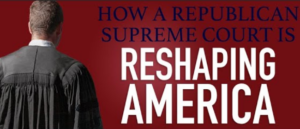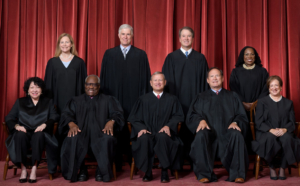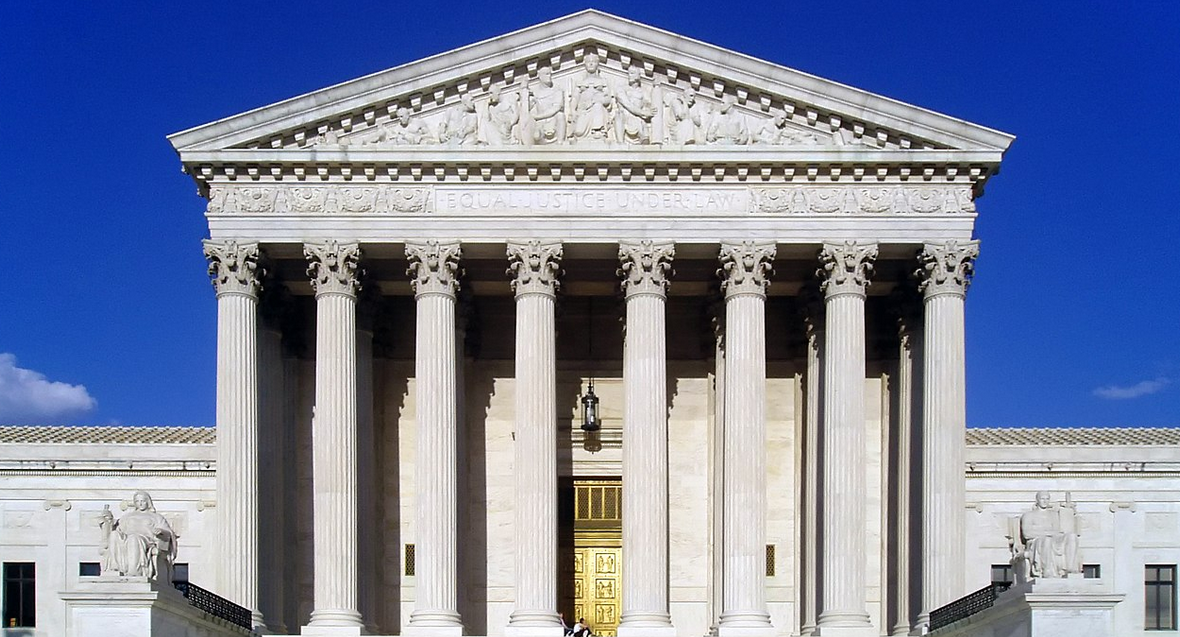Photos: YouTube Screenshots\Wikimedia Commons
The Supreme Court’s conservative supermajority has pacified the Republican base. The justices overturned Roe v. Wade, struck down long-standing limits on gun possession, and banned affirmative action in college admissions. The new term, which starts this week, is for the paying customers — the megadonors who want a conservative Supreme Court to help them neuter the government regulators who hold power over their businesses.

The justices heard oral argument Tuesday in Consumer Financial Protection Bureau v. Community Financial Services Association of America, Limited. It concerns the way the consumer watchdog agency gets funded.
The CFPB gets its funding directly from the Federal Reserve; it doesn’t have to seek an annual appropriation from Congress. Lawmakers chose this approach in 2010, when they established the CFPB, for two primary reasons. First, the CFPB inherited some of the Fed’s work, so it made sense to inherit some of its money. Second, an independent source of funding insulates the CFPB from the influence of the same wealthy lobbyists it’s supposed to be regulating.
In a case brought by the payday lending industry, the Fifth Circuit Court of Appeals ruled that this arrangement violates Article I, Section 9 of the Constitution, which states that “No Money shall be drawn from the Treasury, but in Consequence of Appropriations made by Law.” In other words, according to the Fifth Circuit, Congress may not establish a permanent source of funding outside the annual budgeting process.
If the Supreme Court endorses this reasoning, the repercussions will be far-reaching. The Federal Reserve itself does not receive an annual budget from Congress, so its funding would be presumptively unconstitutional. Interest payments on the national debt are also permanently appropriated. The funding for Social Security would come into question. The payday lenders are asking for a decision explicitly limited to the CFPB, but it’s not clear on what constitutional principle such a distinction could be made. A decision against the CFPB would put it all into doubt. While the oral argument was promising for the agency, this dangerous legal theory never should have made it to the Supreme Court.
The CFPB case is the first of many this term that threaten to erase decades of constitutional interpretation and roll back the federal government’s regulatory authority.
In Loper Bright Enterprises v. Raimondo, the Court will decide whether to discard entirely the idea that courts should defer to the expertise of federal agencies when a statute is silent or ambiguous on an issue. This principle, known as Chevron deference after a unanimous 1984 decision, has given flexibility to government regulators in areas like climate change. Those who oppose Chevron deference present themselves as advocates for Congress; in fact, this is a power grab for judges.
The Court will also hear SEC v. Jarkesy, in which the Fifth Circuit — yes, them again — struck down the Securities and Exchange Commission’s power to administer enforcement proceedings within the agency rather than in federal court. The case threatens to slow the SEC’s work to a near standstill. In Moore v. U.S., the justices may look to block a federal wealth tax before it’s ever enacted.
The longer you stare into the Court’s docket, the clearer the endgame becomes: unraveling the administrative state, blocking financial reform, and reversing the New Deal. Overturning the progressive decisions of the Warren Court is just a side hustle.







